Counting back 365 days from the end of side b
on the B tablet will bring us to glyph number 506 - 365 = 141
(Bb4-20).
|
a1 |
47 |
47 |
b1 |
31 |
31 |
|
a2 |
40 |
87 |
b2 |
47 |
78 |
|
a3 |
37 |
124 |
b3 |
43 |
121 |
|
a4 |
40 |
164 |
b4 |
42 |
163 |
|
a5 |
43 |
207 |
b5 |
40 |
203 |
|
a6 |
44 |
251 |
b6 |
40 |
243 |
|
a7 |
43 |
294 |
b7 |
41 |
284 |
|
a8 |
46 |
340 |
b8 |
42 |
326 |
|
a9 |
49 |
389 |
b9 |
50 |
376 |
|
a10 |
32 |
421 |
b10 |
42 |
418 |
|
|
b11 |
43 |
461 |
|
b12 |
45 |
506 |
|
sum |
421 |
sum |
506 |
From guessing that Ba1-1 had been intended to represent the
first day of a new year it ought to be possible
to visualize some of the consequences. I am
firmly convinced it was necessary to allot 1
right ascension date for each glyph.

For otherwise it would not have been possible to read
the rongorongo texts produced by the creative
minds of other people:
 |
 |
 |
 |
 |
 |
|
Bb4-14 (135) |
Bb4-15 |
Bb4-16 |
Bb4-17 |
Bb4-18 |
Bb4-19 (140) |
|
Oct
5
(278) |
6 |
7 |
8
(464 - 183) |
9 |
10 (283) |
| ki
to vae oho |
ma
te tara huki |
a
rere te manu |
ki
to vaha kai |
ma te hoko huki - kua rere te
manu |
vae oho |
|
APAMI-ATSA (Child of Waters) = θ
Virginis,
ψ
Hydrae (198.5),
DIADEM = α Com. Ber.
(198.9) |
AL DAFĪRAH (Tuft) =
β
Com. Ber.
(199.4)
*158.0 = *199.4 - *41.4 |
σ Virginis (200.4)
*159.0 = *200.4 - *41.4 |
γ
Hydrae (201.0),
ι
Centauri (201.4)
*160.0 = *201.4 - *41.4 |
Al Simāk-12 (Lofty) /
Chitra-14 (Bright One) /
Horn-1 (Crocodile) /
Sa-Sha-Shirū-20
(Virgin's Girdle) /
ANA-ROTO-3 (Middle pillar)
MIZAR = ζ Ursae Majoris (202.4),
SPICA = α Virginis, ALCOR = 80
Ursae Majoris
(202.7)
SADALMELIK (α Aquarii)
*161.0 = *202.4 - *41.4 |
71 VIRGINIS
(203.6) |
|
... Proclus
informs us that the fox star nibbles
continuously at the thong of the
yoke which holds together heaven and
earth; German folklore adds that
when the fox succeeds, the world
will come to its end. This fox star
is no other than Alcor, the
small star g near zeta Ursae Majoris
(in India Arundati, the
common wife of the Seven Rishis,
alpha-eta Ursae ...
 |
|
CLOSE TO THE FULL MOON: |
|
April 6 (96) |
7 |
8
(363 + 100) |
9
(99) |
10 (465) |
11 (101) |
 |
 |
 |
 |
 |
 |
|
Bb4-20 (141) |
Bb4-21 |
Bb4-22 |
Bb4-23 |
Bb4-24 (145) |
Bb4-25 |
|
Oct 11
(284) |
(468
- 183) |
13 |
14
(470 - 183) |
15
(288) |
(472
- 183) |
|
CLOSE TO THE FULL MOON: |
|
April 12 (102) |
4-13
→ 14 * 29½ |
→
BHARANI (*41.4) |
15
(470) |
16 (364
+ 107) |
(472
- 365) |
|
360 |
360 + 421 = 781 = 11 * (11 + 61) |
416 |
 |
 |
 |
 |
 |
|
Ba1-1 |
Ba1-2 |
Ba1-3
(509) |
Ba1-4 |
Ba1-5 |
|
Oct
12 (285) |
13 |
14 |
15
(288) |
16 |
| Ka tuu
i te Ragi |
ki te
henua |
e rua |
no
Hoatumatua |
ka
hakanohoa |
|
HEZE = ζ Virginis
(205.0), Southern Pinwheel Galaxy =
M83 Hydrae (205.7) |
ε Centauri (206.3),
κ Oct. (206.4)
*165.0 = *206.4 - *41.4 |
No
star listed (207) |
τ
Bootis (208.2),
BENETNASH (Leader of the Daughters
of the Bier) = η Ursae Majoris
(208.5),
ν
Centauri (208.7),
μ
Centauri,
υ
Bootis (208.8) |
No
star listed (209) |
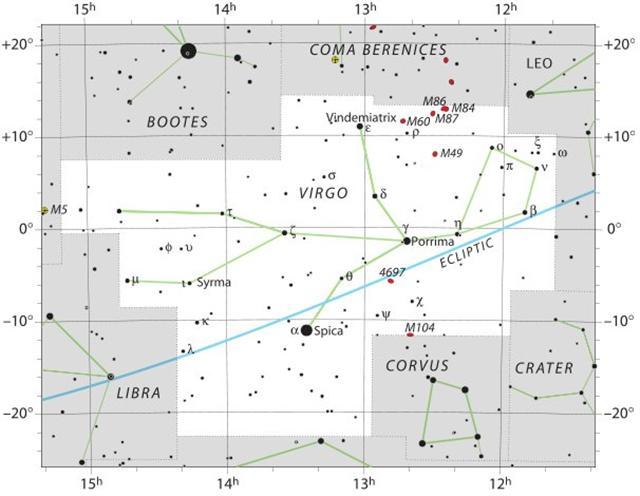
... If the moral attitudes of
primitive man are hard for the Western mind to grasp and translate into
familiar terms, there can hardly be one more so than the Maori notion of
cooked food as the lowest thing, the furthest opposite to the sacred, in
fact filthy. For us to divest our minds of
Christian notions of good and evil and substitute the concept of simple
payment, harm for harm (or 'revenge', as we commonly call it with a
misleading moral overtone), is simple enough - perhaps because every
schoolchild has at some time known the latter in his horrid heart. Even the
Maori custom of weeping over friends when they arrive instead of when they
depart has a certain logic that is not beyond our comprehension. But to enter, against all
conditioning, into the minds of a people for whom cooked food and the act of
eating could carry the overtones of meaning that we in our greater wisdom
attach to their physical opposites and to sex, is a good deal harder. One
has somehow to throw the mind into a state of being that is radically unlike
ours. Yet if the trick can be done, a light comes on ... |
|
CLOSE TO THE FULL MOON: |
|
FEBR 8 (*324) |
9
(40) |
10 |
11 |
12
(408) |
|
ACHERNAR (End of the River) = α Eridani
(23.3),
χ
Andromedae (23.6),
τ
Andromedae (23.9) |
ALSEIPH (Scimitar) = φ Persei
(24.5),
τ
Ceti (24.7) |
No
star listed (25) |
ANA-NIA-10 (Pillar-to-fish by)
χ Ceti (26.1),
POLARIS = α Ursae Minoris, BATEN KAITOS
= ζ Ceti
(26.6),
METALLAH = α Trianguli
(26.9) |
Al Sharatain-1 /
Ashvini-1 /
Bond-16 (Dog) /
Mahrū-sha-rishu-ku-1 (Front of the Head
of Ku)
SEGIN = ε Cassiopeia, MESARTHIM = γ
Arietis,
ψ
Phoenicis (27.2),
SHERATAN (Pair of Signs) = β Arietis, φ
Phoenicis (27.4)
*351.0 = *27.4 - *41.4 |
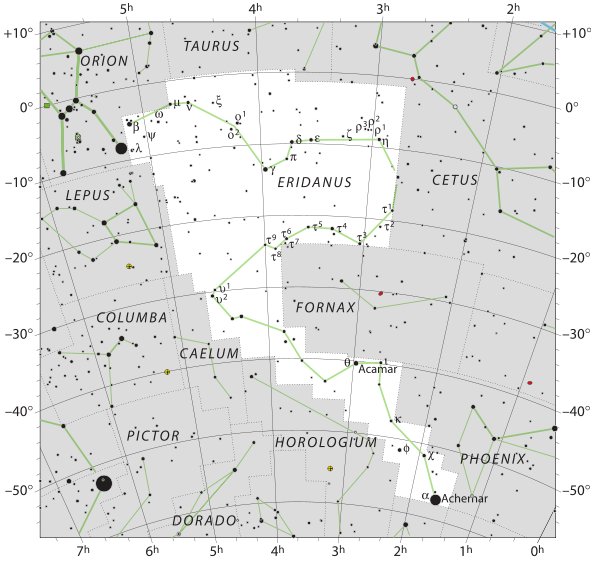 |
|
4-13
→ 14 * 29½ |
April
14 |
15 |
16
(471) |
17
(107) |
|
°April 9 |
10
(100) |
11 |
12
(*22) |
13 |
|
'March 17 |
18 |
19
(78) |
20
(*364) |
0h |
|
"March 3 |
4 |
5
(64) |
6
(*350) |
7 |
In the night of October 8 (8-8 →
64, 10 * 8 → 80 = 64 + 16)
... we should
reduce with 16 days because
anciently they waited for the
return to visibility of the
relevant star
...
the Full Moon could be observed at the right
ascension line of April 9
(99).
|
 |
|
Bb4-17 |
|
ki
to vaha kai |
... After
five complete cycles
totaling 2,920 days, the
movement of Venus will fill
eight idealized years of 365
days each and come within
hours of spanning 99
lunations:
|
5
Venus cycles |
8
years |
99 Moon cycles |
|
2920 (= 40 * 73)
nights |

.jpg)
Possibly Bb4-17 was illustrating
a mouth at the point of opening (vaha
kai).
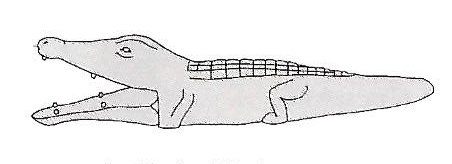
Vaha. Hollow; opening;
space between the fingers (vaha
rima); door cracks (vaha
papare). Vahavaha, to
fight, to wrangle, to argue with
abusive words. Vanaga. 1. Space,
before T; vaha takitua,
perineum. PS Mgv.: vaha, a
space, an open place. Mq.: vaha,
separated, not joined. Ta.: vaha,
an opening. Sa.: vasa, space,
interval. To.: vaha, vahaa,
id. Fu.: vasa, vāsaà,
id. Niuē: vahā.
2. Muscle, tendon;
vahavaha,
id. Vahahora
(vaha
1 - hora
2), spring. Vahatoga
(vaha
1 - toga
1), autumn. 3. Ta.:
vahavaha,
to disdain, to dislike. Ha.:
wahawaha,
to hate, to dislike. Churchill.
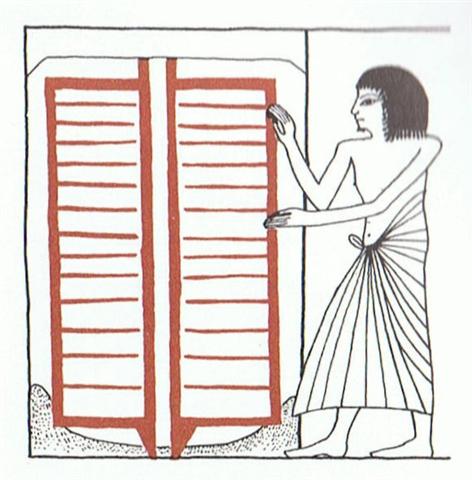
In the G text we can find a similar
glyph at MARCH 19 (78):
|
MARCH 17 |
18 |
19 (78 = 142
- 64) |
20 (444 =
365 + 79) |
0h (*365) |
 |
 |
 |
 |
 |
|
Gb5-8 |
Gb5-9 |
Gb5-10 (363) |
Gb5-11 (229
+ 135) |
Gb5-12 (365) |
|
4h (60.9)
JĪSHUĬ =
λ
Persei
(60.7)
COR CAROLI (α
Canum Ven.) |
υ Persei
(61.2) |
BEID (Egg)
=
ο¹
Eridani
(62.2),
μ
Persei
(62.8)
VINDEMIATRIX
( ε
Virginis) |
Al Dabarān-2
(The
Follower)
HYADUM I
= γ
Tauri
(63.4)
*22.0 =
*63.4 -
*41.4 |
HYADUM II
= δ¹ Tauri
(64.2) |
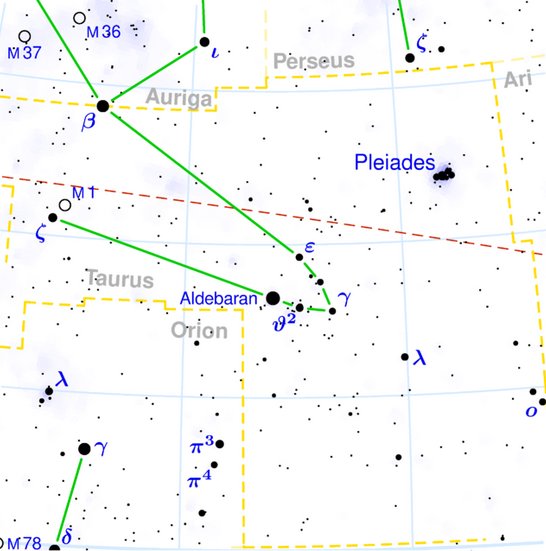 |
|
May 20 |
21 |
22 (142) |
23 (*428) |
24 (509) |
|
... Should
we try to
count from
the
beginning of
side b, then
the position
of Ba1-3
will become
day number
506 + 3 =
509, which
'happens to
be' equal to
365 + 12 *
12 = 364 +
145 = 2 *
182 + 290 /
2 (where 290
= 182 + 108)
... |
|
°May 16
(136) |
17 |
18 |
19 (*424) |
20 (*60) |
|
'April 23 |
24 (114) |
25 (*400) |
26 (*36) |
27 |
|
"April 9
(99) |
10 (465) |
11 |
12 (*22) |
13 |
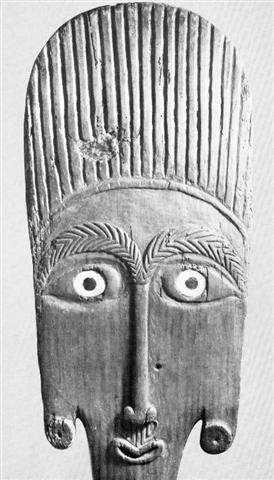
... The for us
peculiar form of the
upper lip can been
explained: ... what
appears to be a
full-frontal face in
Maori art is
actually a split
representation
composed of two
profile forms, a
feature of Maori
tattoo and carving
first described by
Lévi-Strauss (1963:
256-64) following
Boas's analysis of
the same phenomenon
in North-west Coast
American Indian art
(Boas 1955: 223ff).
Split representation
allows all the
essential features
of a
three-dimensional
animal or human to
be shown clearly
without perspective
distortion on a flat
or relief surface or
on a
three-dimensional
form different from
the natural animal
form. This obviously
meets the need of a
'conceptual' art
anxious to represent
ancestors correctly
with all necessary
details present.
Split
representations
explains the deep
v-shape between the
brows of Maori
faces, the
frequently doubled
nose and the
convergence of lips
at the centre line
of the face ...
... What might lie behind this
statement is revealed by a contemporary Mopán Maya
tale in which Lord K'in
(the sun) goes from his home in the east to the
center of the sky and then back to the east again;
it appears that he goes clear across the sky because
he has placed a mirror at its center. To interpret
the movements of the sun in this manner is to model
it on Venus as morning star, which both rises and
sets in the east ...
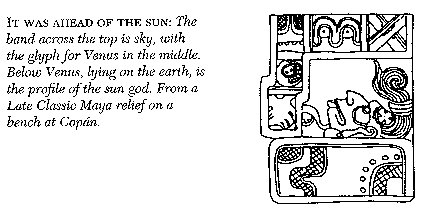
|












.jpg)







